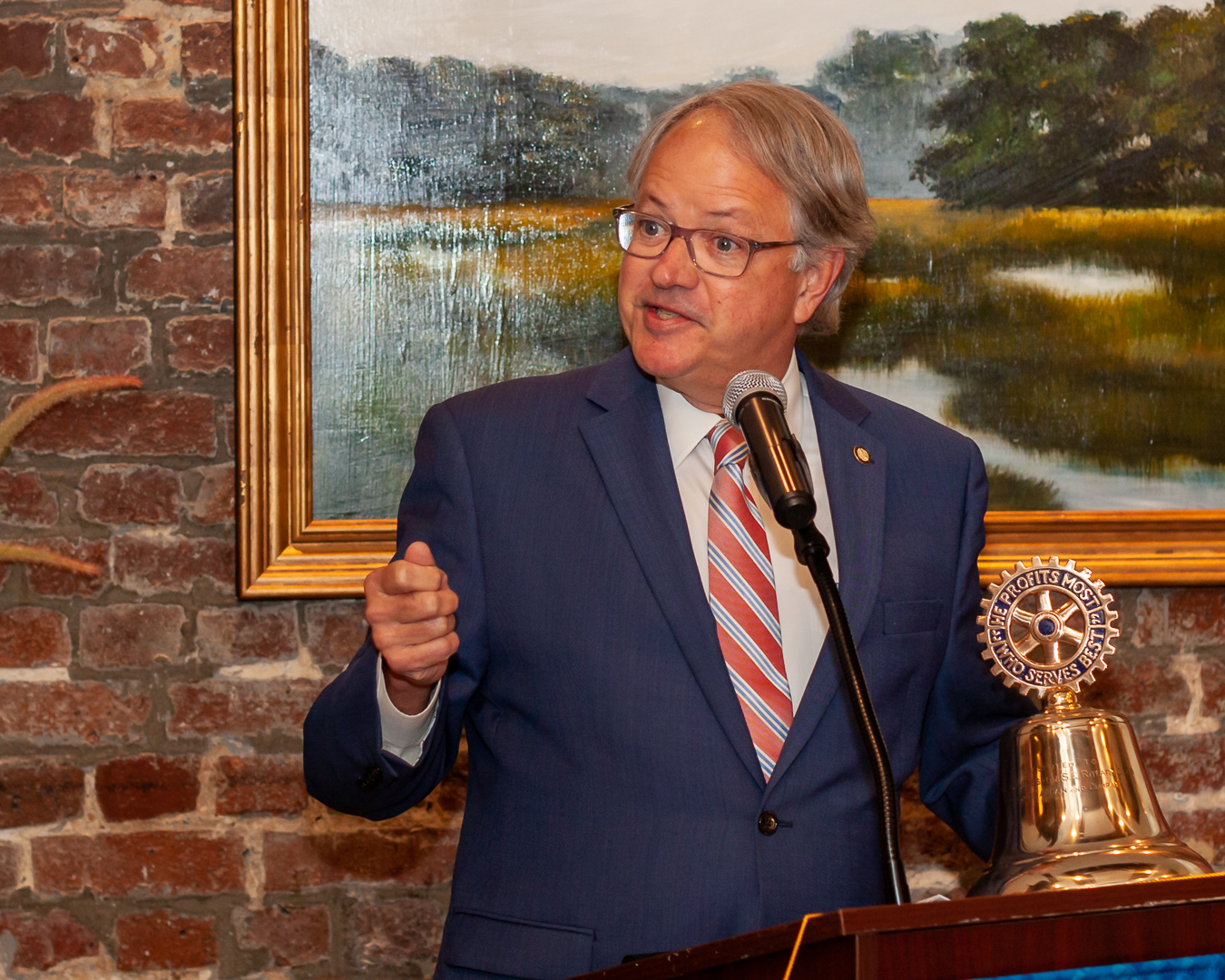January 24, 2017 – Our keynote speaker this week was Dr. Peter von Wartenberg (“Wartenberg”). Wartenberg has been with the Bosch Group for twenty (20) years, where he began as a logistics specialist at the Bamber Plant in Germany. Since 2014, Wartenberg has been the Chief Financial Officer for Diesel Systems North America and Plant Manager for the Bosch at the Commercial Plant located in Charleston.
Wartenberg discussed and explained (i) The Bosch Group, (ii) his Story of Digital Transformation, (iii) Digital Transformation at Bosch, and (iv) Digital Transformation live at Bosch Charleston.
In 2015, Bosch’s sales revenue was approximately $75 billion. In addition, Bosch employed 374,778 associates worldwide and had 118 engineering locations worldwide. Bosch is on the world’s largest suppliers of automotive technology, as its production of mobility solutions accounts for fifty-nine (59%) percent of its sales revenue. The remaining forty-one (41%) percent of Bosch’s sales revenue is derived from the following business sectors: (i) industrial technology; (ii) energy and building technology; and (iii) consumer goods. Bosch is a leader in drive and control technology, packaging and process technology. In addition, Bosch is a leading manufacturer of security technology and a global market leader of energy efficient heating products and hot-water solutions. Bosch is also a leading supplier of power tools and accessories as well as household appliances.
Bosch North America contributed approximately seventeen (17%) percent to global sales in 2015 and has seventy-five (75) locations. In North America, Bosch employs 18,208 (approximately 5%) associates throughout eight divisions: (i) automotive technology, (ii) industrial technology, (iii) power tools, (iv) household appliances, (v) heating systems, (vi) security systems, (vii) development, and (viii) sales.
Wartenberg shared his story of being a musical disc jockey in 1990 (included photos) and explained how the change from cassette tapes to compact discs to digital download transformed the music industry. Wartenberg went on to explain how the internet has transformed the digital world despite Bill Gates belief in 1993 that “the Internet is just a hype.” A more recent example of the impact digital transformation has had on traditional industries is the presence of Uber in the automotive industry, which has an estimated value in excess of Ford and GM combined. According to Wartenberg, there has been a rapid development of connecting people and things and there is no digital strategy anymore, just strategy in a digital world. For example, in 1995 15 million people had access to the internet compared to the estimated 50 billion people in 2020. Moreover, in 1997 6 million computers were connected to the internet, where as it is estimated that 50 billion devices will be connected to the internet in 2020.
As for the digital transformation at Bosch, Bosch views its people as key players and believes that its must give its employees a purpose. Specifically, collaboration with the employees allows the leadership to enable change. For example, Bosch utilizes fast integration and flexible configuration, open standards, virtual real-time representation, digital life-cycle management, secure value-creation network and distributed intelligence.
Wartenberg explained how there have been several important changes in recent years. For example, (i) low priced sensors are readily available; (ii) the internet is available worldwide; and (iii) there is an unlimited availability of inexpensive storage and central processing units.
The Bosch Charleston plant has been in our community since 1974. Currently, there are approximately 1,777 associates at the 910,150 sq. ft. facility. Wartenberg explained that, based on the pro-business environment, there may be expansion at the Charleston plant in order to penetrate into the NAFTA market and Wartenberg anticipates market growth in new products. Currently, the Bosch Charleston plant produces engine parts that save lives and have power, including (i) common rail injector and nozzle for diesel systems, (ii) fuel injector, high pressure fuel injector, and high pressure pump for gasoline systems, and (iii) electronic stability program for chassis control. Wartenberg explained how the robotic assisted system at the Charleston plant made the production process more efficient and reduced production costs. For example, adaptive testing increased efficiency and predictive maintenance improved overall equipment effectiveness.
— Abe Gutting, Keyway Committee


